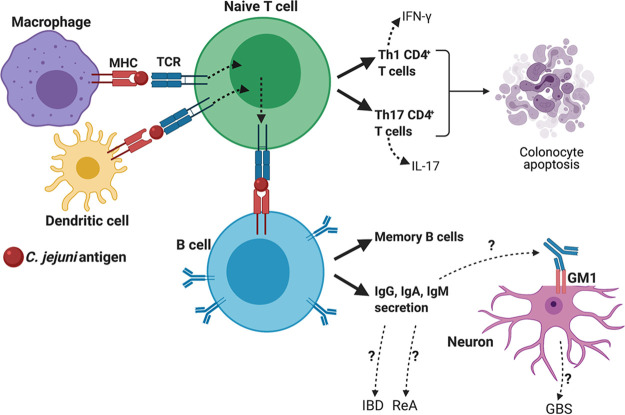FIG 3.
Generation of the adaptive immune response through antigen presentation during campylobacteriosis. During infection, macrophages and dendritic cells present processed C. jejuni antigens to naive T lymphocytes. Through T cell differentiation, naive T cells develop into Th1 and Th17 CD4+ T lymphocytes, resulting in IFN-γ and IL-17 secretion, respectively. These activated T lymphocytes can then cause the upregulation of proapoptotic pathways within colonocytes. Additionally, T cells present processed C. jejuni antigen to B cells, leading to proliferation of memory B cells and C. jejuni-specific IgG, IgA, and IgM secreting plasma cells. These antibodies have been hypothesized to target self-GM1 gangliosides on neurons, leading to the generation of numerous autoimmune diseases, such as Guillain-Barré syndrome.

